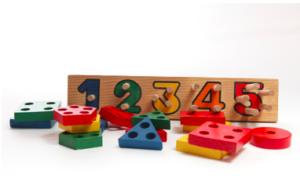By Gedaliah Borvick

JERUSALEM — Buying a home in Israel is very different than in the U.S. The language is different, the payment structure is usually different, the legal process is different, and the numbers are different. Let’s focus on some of the numbers:
Floors
In the U.S., if you look at an apartment on the third floor, you’re standing on the third floor. Pretty obvious, right? Not so simple. Here in Israel the third-floor apartment is on the fourth floor. The first floor is called “0” or “karka” (ground), the second floor is called “1,” and so on.
Meters
Yes, our elementary school teachers were right when they told us that the world is moving to the metric system — the world has, except for the U.S. Here’s the quick calculation: 1 square meter (sqm) = 10.76 square feet (sf), therefore a 100 sqm apartment is 1,076 square feet. (A square meter should not be confused with a linear meter which equals 3.28 feet, e.g., a 2-meter-tall person is a little over 6’6.”)
Dunam

It sounds like a Hebrew word, but dunam is actually a unit of land area that was used during the era of the Ottoman Empire. In Israel, a dunam equals 1,000 square meters, equaling 10,764 sf, or just about a quarter of an acre. Dunam is an important word for people who are buying land or a single-family home to redevelop.
Room Count
I was an investment sales broker in the U.S. for many years, and a three-room apartment in New York had one bedroom and a four-room apartment had two bedrooms. In Israel, a three-room apartment has two bedrooms, and a four-room apartment has three bedrooms. The kitchen, mirpeset (porch), basement and attic don’t count in the room count, although they offer tremendous development upside.
Arnona
Municipal taxes (think of it like real estate taxes in the U.S.) must be paid on every property. Unlike in the U.S., the tenant — not the landlord — pays the arnona (unless the apartment rental is short term). This is done for one simple reason: the tenant’s status affects the tax rate. For example, reductions are given to retirees, soldiers, people with disabilities, single-parent families, and in some cases, for residents with very low salaries. The arnona rate in the country ranges from 34 shekels to over 100 shekels per meter, depending on the municipality. In Jerusalem, the average arnona rate in or near the center of town is around 100 shekels per meter, so a 100-meter apartment’s annual arnona bill would be 10,000 NIS ($3,100).
*
Gedaliah Borvick is the founder of My Israel Home (www.myisraelhome.com), a real estate agency focused on helping people from abroad buy and sell homes in Israel. To sign up for his monthly market updates, contact him at gborvick@gmail.com.